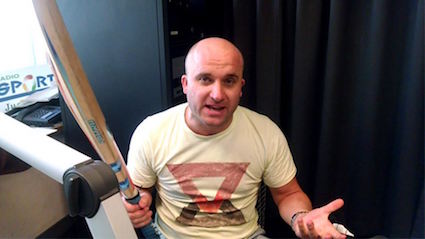By Radio Sport Breakfast co-host Kent Johns
One sure way to wind up a cricket “purist” is to suggest change to test matches. Trust me, it works every time.
Even if your own ideas are well meaning and sensible, the purist will accuse you of not being a “true cricket fan” primarily because they don’t like the suggestion for improvement that has been made.
It seems impossible to the purist for there to be positive change to test cricket. It should be left alone to prosper, as it always has.
So when the idea for reducing tests from five days to four gets floated, the purist troops mobilise themselves with impressive speed and defiance. They don’t have any time for the idea because, after all, tests are “traditionally” five days in length.
There are two problems with this entrenched stance. One, test cricket hasn’t always been five days in length. Since the first match in 1877, tests have been played officially over durations of three, four, five and six days.
There was even a time when tests were timeless — that is, played for an indefinite period until a winner was found. The notion of the traditional five-day test is nothing more than a comfort blanket for opponents of a reduction.
The second problem is without change to the current format, test cricket will wither and die. Test cricket has never been less popular than it is now.
An average crowd of only 1300 people per day turned out for the recent two-test series between New Zealand and the West Indies. And both tests only lasted four days, and were played over weekends.
In contrast, more than 17,000 spectators attended the New Zealand v Pakistan T20 international at Eden Park on a Thursday night.
New Zealand Cricket will certainly be banking on a better turnout for the inaugural day/night test in Auckland against England next month.
Day nighters are a progressive and necessary step to invigorate interest in a flagging product but, alone, are not enough.
A Test Championship starting in 2019 is another good, and long overdue, move, but we will only have a winner every two years.
For test cricket to remain sustainable, it needs to be reduced to four days in length, with the possibility of extra overs to be bowled each day. Thursday-Sunday matches are the way to go, and here’s why: The match is almost guaranteed to reach its crescendo on the weekend when most fans can watch, it is more cost effective for administrators and broadcasters when most tests are not going to a fifth day anyway, and a three-test home series for New Zealand will be more achievable because of time saved in a congested calender.
Did you hear that purists? You’ll get more test cricket!
The leading players’ opinions count, and many voice their displeasure at the notion of change to test cricket.
Gun Australian opener David Warner recently said he had no interest in four-day cricket.
“It’s the longevity, being out there on your legs, it’s grit and determination — those things come to mind to actually want to keep playing five-day cricket.”
Warner is one of the reasons tests generally only last four days. After all, have you seen him bat? It’s not exactly pure test cricket, is it?
HALBERG AWARDS
The Halberg Awards are always good for discussion and debate. They were held in Auckland on Thursday, February 8, and I know many of the judging panel, and always enjoy trying to guess which way they will lean.
So I had a crack at picking the big winners at the time of writing this column on February 2. We’ll check back in on my success rate next month.
Sportswoman of the year: Lisa Carrington is a judges’ darling. Black Ferns star Portia Woodman will be a close second.
Sportsman: Shotputter Tom Walsh wins this easily. It would have been a great debate had Peter Burling’s name been put forward by Team New Zealand.
Disabled Sportsperson: Always the hardest to pick because it is very difficult to put acheivements into context. I think the panel would have gone with swimmer Sophie Pascoe, who set six national records at the New Zealand Championships.
Team of the Year: History says when Team New Zealand wins the America’s Cup it wins the top Halberg awards. Our country has a fixation with the America’s Cup and the panel will reflect this.
Supreme Halberg Award: Refer to the above answer for Team of the Year.




